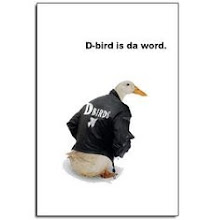Photo:This work is licensed under a Creative Commons Attribution-No Derivative Works 3.0 License LINK
I have been a storyteller since the beginning of my life, rearranging facts in order to make them more significant.
JOHN CHEEVER
Found this excellent quote via @AdviceToWriters on Twitter. For the teacher librarian, as having a place full of written stuff (in print and digital form) and English teachers (who teach creative writing), there are some useful people to follow on Twitter for information/ideas/inspiration about writing. Microblogging (such as Twitter) = short snapshots of information, quick to read and investigate and use or skip over, depending on what interests you.
Some other folk who tweet about writing:
@elizabethscraig: check her stream of tweets for all sorts of useful links about writing eg.:
Elizabeth S Craig @elizabethscraig
5 ways to avoid an info dump: http://bit.ly/kvLUMo #amwriting
SydneyWritersCentre @SydneyWriters
26/05/11 4:43 PM
10 ways to completely screw up your novel: http://bit.ly/lm5fi7 #amwriting
This is not the only writers' centre (in Australia or overseas) with a Twitter presence. Some post more about their centre's events, but others include writing advice tweets to, that you can use in teaching English. Hunt for them on Twitter, or by googling their sites and checking to see if they are on Twitter.
OZ SF+F Writers Assc @awritingjourney
26/05/11 4:19 PM
The ASFFWA Daily is out! http://bit.ly/fzVIKj ▸ Top stories today via @bloomsburysyd @harpernz @bothersomewords @shearersbooks
The Australian Science Fiction and Fantasy Writers' Assoc regularly tweets useful stuff. This tweet is one about their "Daily". Some folk on Twitter use a site such as paper.li to collate tweets from their twitter stream (ie. tweets from people they follow and are interested in) into a digital newspaper. So if you follow the ASFFWA Daily link in this tweet, you are getting pre-sifted/curated content focused on topics that tweeter is interested in; so if you're interested in what they are, you're getting the benefit of their twitter stream.
And of course many authors are on Twitter: their Twitter streams can be extremely various: as varied indeed as the writers themselves. Best idea is to follow ones that might interest you, and if you're not finding their tweets useful/engaging, then unfollow them. Some writers will tweet everything from what they had for breakfast (that Twitter stereotype) to stuff about their writing process. Some will be more focused on writing. Stephen Fry's tweets (he's one of the most followed people on Twitter and tweets often) cover an extensive range of topics, daily life, thoughts, ideas. You can't make a writer write what they want, in books or anywhere else; on Twitter, if you follow them, you have to accept that they write what they do. Neil Gaiman @neilhimself has a lot of followers and tweets on a range of topics: he was one writer tweeting about the interrogation of teacher librarians in LA.
There are writers whose books I adore and whose blogs I find unreadable; and writers whose output, in whatever form, I generally find interesting. Nowt as varied as folk.
But am I finding good information about writing via my education/professional/teaching Twitter stream that I can use with students and share with English teaching colleagues? Yup. You can, too.
(OK, I'll admit it: this blog entry about useful info on writing is in fact a sneak evangelical moment for the educational possibilities of Twitter).
Cheers
Ruth
@ruth_skerricks on Twitter
I'm also on Yammer, but will only be found there if you work for the same employer as I do, because that is how Yammer works.






















1 comment:
Thanks for the survey, especially the Australian content,
Rachael
Post a Comment